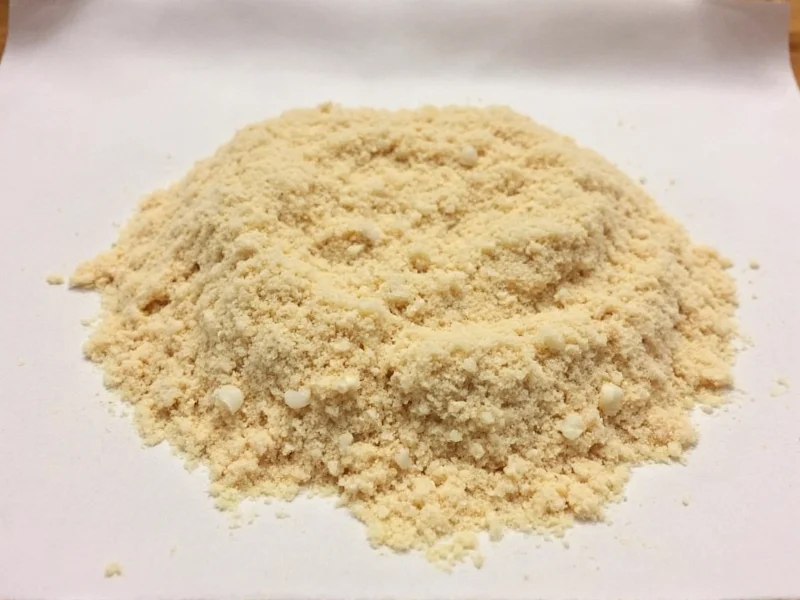When evaluating whether onion powder fits into your dietary plan, understanding its precise nutritional profile is essential. Many people following low-carb, keto, or diabetic diets need accurate information about seasoning choices. Unlike fresh onions, which contain about 9-10% carbohydrates by weight, the dehydration process removes water content while concentrating the natural sugars and fibers.
Nutritional Breakdown of Onion Powder
According to USDA FoodData Central, the standard nutritional profile for onion powder per tablespoon (7g) serving is:
| Nutrient | Amount per Tablespoon (7g) | % Daily Value* |
|---|---|---|
| Total Carbohydrates | 5.8g | 2% |
| Dietary Fiber | 1.4g | 5% |
| Sugars | 1.9g | - |
| Protein | 0.9g | 2% |
| Calories | 27 | 1% |
*Percent Daily Values are based on a 2,000 calorie diet. Your daily values may be higher or lower depending on your calorie needs.
Why Onion Powder Has More Carbs Than Fresh Onions
The dehydration process explains why onion powder has a higher carbohydrate concentration. Fresh onions contain approximately 89% water. When dehydrated to create powder, that water is removed, leaving behind the concentrated dry matter including carbohydrates, fiber, and natural sugars.
For perspective, 100g of fresh onions contains about 9g of carbohydrates, while 100g of onion powder contains approximately 83g of carbohydrates. However, you'd never consume 100g of onion powder at once—the typical serving is just 1-2 teaspoons in cooking.
Practical Implications for Special Diets
Keto Diet Considerations
For those following a strict ketogenic diet (typically limited to 20-50g of net carbs daily), onion powder requires careful measurement. With approximately 4-5g of net carbs per tablespoon (total carbs minus fiber), it can quickly add up if used liberally.
Many keto dieters find they can incorporate small amounts of onion powder (½ to 1 teaspoon) into recipes without breaking ketosis, but should track it as part of their daily carb budget. Those in the early stages of keto might choose to avoid it temporarily.
Diabetes Management
People managing diabetes should note that while onion powder contains carbohydrates that affect blood sugar, it also contains quercetin and other compounds that may have blood sugar regulating benefits. The glycemic impact of the small amounts typically used in cooking is generally minimal for most individuals.
Smart Usage Tips for Low-Carb Cooking
You don't need to eliminate onion powder completely from low-carb cooking—just use it strategically:
- Measure precisely rather than eyeballing portions
- Consider using ½ teaspoon instead of a full tablespoon
- Combine with zero-carb seasonings like garlic powder, salt, and pepper to stretch flavor
- Make your own blend with lower-carb alternatives like asafoetida (hing) which has minimal carbs
- Track your usage in a food diary app to monitor cumulative carb intake
Comparison With Common Seasonings
How does onion powder stack up against other popular seasonings for carb content?
| Seasoning (1 tsp) | Total Carbs | Net Carbs |
|---|---|---|
| Onion powder | 2.0g | 1.6g |
| Garlic powder | 1.0g | 0.8g |
| Cumin | 0.4g | 0.2g |
| Paprika | 0.6g | 0.4g |
| Chili powder | 1.2g | 0.9g |
Homemade Low-Carb Onion Flavor Alternatives
If you're strictly limiting carbs, consider these alternatives that provide similar flavor profiles with fewer carbohydrates:
- Asafoetida (hing): This resin has a strong onion-garlic flavor with virtually zero carbs. Use sparingly (a pinch replaces 1 tsp onion powder)
- Green onion tops: The green parts contain fewer carbs than bulb onions and can be dried and powdered
- Onion extract: Concentrated liquid form provides flavor with minimal volume (check labels for added sugars)
- Combination blends: Mix garlic powder, a tiny bit of onion powder, and salt to stretch the onion flavor
Reading Labels for Hidden Carbs
When purchasing commercial onion powder, check for added ingredients that increase carb content:
- Anti-caking agents like calcium silicate (generally low carb)
- Added sugars or maltodextrin (significantly increases carbs)
- Seasoning blends that include onion powder plus other high-carb ingredients
Pure onion powder should list only "dehydrated onions" as the ingredient. Be cautious with pre-made seasoning mixes that often contain hidden carbohydrates.











 浙公网安备
33010002000092号
浙公网安备
33010002000092号 浙B2-20120091-4
浙B2-20120091-4